I arrive just as the sun was setting. A country that seems swallowed up by surrounding Senegal, The Gambia is known as the ‘finger of Africa’. Two sides are landlocked with its neighbour while the other two delineations go from solid to liquid. On the eastern side, the Atlantic Ocean serves both as the beachfront and fishing sites, while on the northern side the Gambian river splices the country in half horizontally. Wilderness and village predominate this place. If Doha was fast-forwarding in time, I felt like I hit the double arrow rewind button here for a very, very long time...
The one and only main drag seemed to be constantly mired in traffic. It’s easy to see why folks around here actually take the time to talk to one another – survival still depends on it. Like the diehards on Boxing Day who’ve waited in line for hours, when the doors open, they converge and scramble to get to their chosen outlet. So too, merging cars slide their way into slim spaces (snailing down the sheer chaos even more).
Without traffic lights how else do cars, pedestrians, police and stray animals communicate? Being to being: with their windows down, hands draped over the doors, eye contact and a lot of psssst pssst (just like some Aunties and Maas we know).
Usually in local languages, the animated exchanges that start at the point of confluence, carry on even as everyone continues inching along their separate (often perpendicular) routes. Way finding to someone’s home is way harder, especially for the non-natives. Area name, block number, perhaps lane and some vague description … even with these gesture-filled guiding tips, you’re usually left needing to talk to others, even the police, enroute to clarify and reroute.
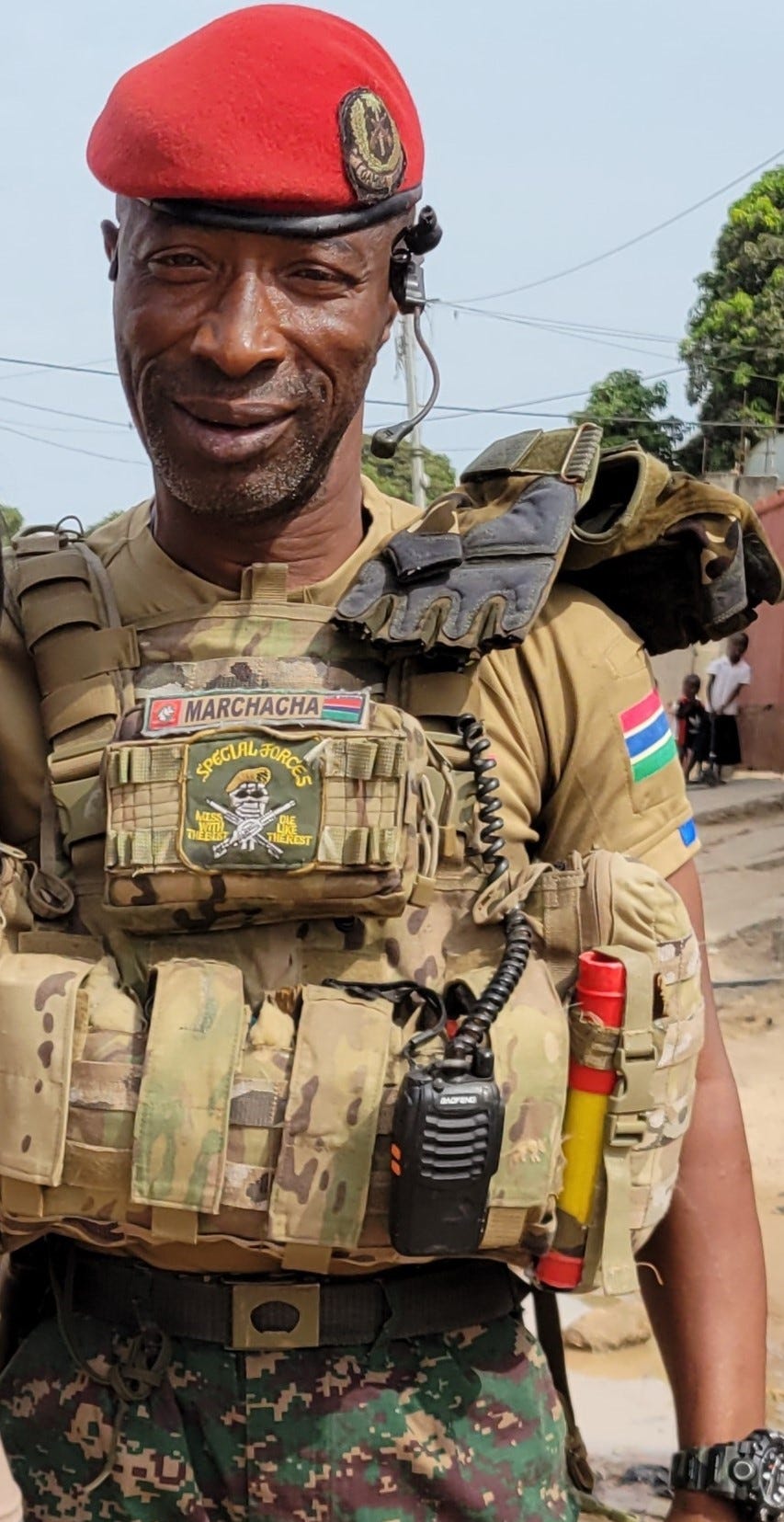
The market scenes are no different. Whether its merchandise (also famous for their pssst pssst attention grabber intros) or identical fruit stands within wingspans of each other, it’s amazing how there’s the delicate balance of competition and symbiotic camaraderie. Outreach vendors and beggars too try to strike up some dialogue, but unlike other places, will relent within reason if you’re obviously not interested.
There’s Africa, then there’s TIA (This Is Africa) where one ought to be pivot-ready, then, there’s this … dooh! The lack of the basics even in tourist areas (hot water, reliable wifi … power), make it seem like luxury again to have the choice between one ply or super stretchy fraying toilet paper (which would you choose? 😉)
I watch the world whiz by. A nearby house seems to be on fire, but when no one else is concerned, I realize that’s a version of ‘taking the evening trash out’ 😮
In the sky like a cute smiling emoji, the moon followed us. Looking out over the dashboard ahead I could see our shortcut, a gravel side-street undulating up and down like some garden shrub, as if it were manicured like this for artistic effect. At the zenith and depth of each, I couldn’t help but think of the ‘ups and downs’ of life.
Like the car ride, each high or low was time limited, therein reinforcing age old wisdom. In periods of oscillation, I’ve taken comfort from Khalil Gibran’s poem On Joy and Sorrow which reminds us that sadness and joy travel in tandem - when one sits with you “the other is asleep upon your bed”.
Around me, the purple swallows pink in the setting sky. While violet dominates, the rosy hues blush the backdrop. With this landscape, I wonder about territorial borders where the Gambian River formed the focus and framework for the British during the slave trade, carving out the country within its Francophone neighbours so as to capitalize on waterway access.
How many things in life get swallowed up unwelcomed – power, politics, personal relations … In developing countries such examples have an unfortunate ripple reality, often affecting multiple generations.
Shifting the magnification to my own life, I ponder over what I consume when it comes to media, mental imprints of others and my own sense of self. I can hear my mom say ‘aako dariyo no parni peewu che - she wants to drink all the water in the Ocean’. Afterall, fueled by ambition or nonchalance, whether we pause to acknowledge it or not, imbibing alters us.
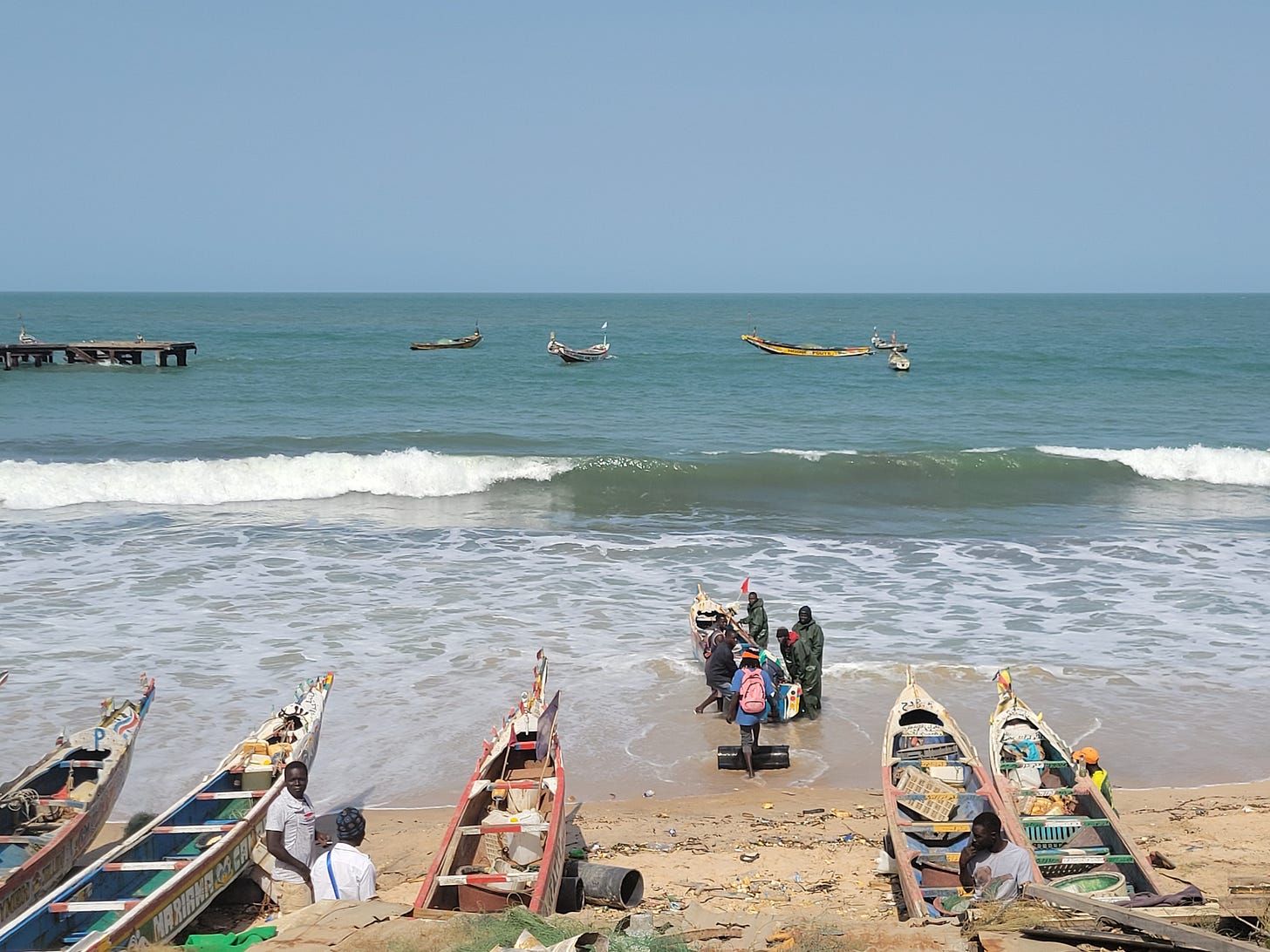
Whether it’s as simple as a drink or as complex as world politic, the intention and input of what we consume impacts our lives.
In this musing I think of where this swallowing up could be beautiful. Of the three moths who were wanting to know the fire, Rumi’s poem (adapted by Attar’s The Three Butterflies) describes how it is the third moth who knows the flame most intimately, only after being engulfed by the fire.
So perhaps in love and divinity, there is a requisite transformation in the swallowing whole.
The ride from the airport is laboriously long. As the sun dunks, my eyes dart across the streets and I swallow this snapshot: the outreach of street vendors hustling their goods, corrugated dirt roads, brilliant hues politely changing their identity at dusk, slanted tin roofs weighed down by rocks, women braiding hair in a rainbow of colours and widths, dust rising and falling as laundered clothes lay strewn over rocks and shrubs – life in the day of a Gambian. Lucky for me, Yankuba’s hobby is music. Doubling as a driver and DJ today, his Afrobeats playlist elevates and exposes me.
My torso jams to the tunes and my ears hear the hope in the buoyant island-esque beat … just as the last shades of rose are swallowed up, the twinkle of the first star of the night catches my eye reminding me that regardless, we will survive.
May we sip and swallow sunsets and sunrises with surprise, satiation, awe and wonder,

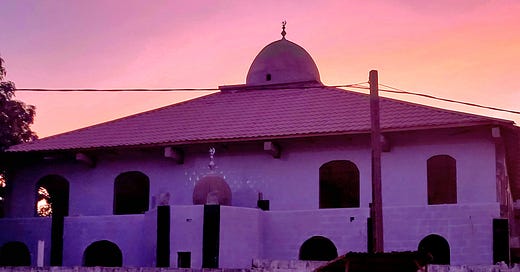


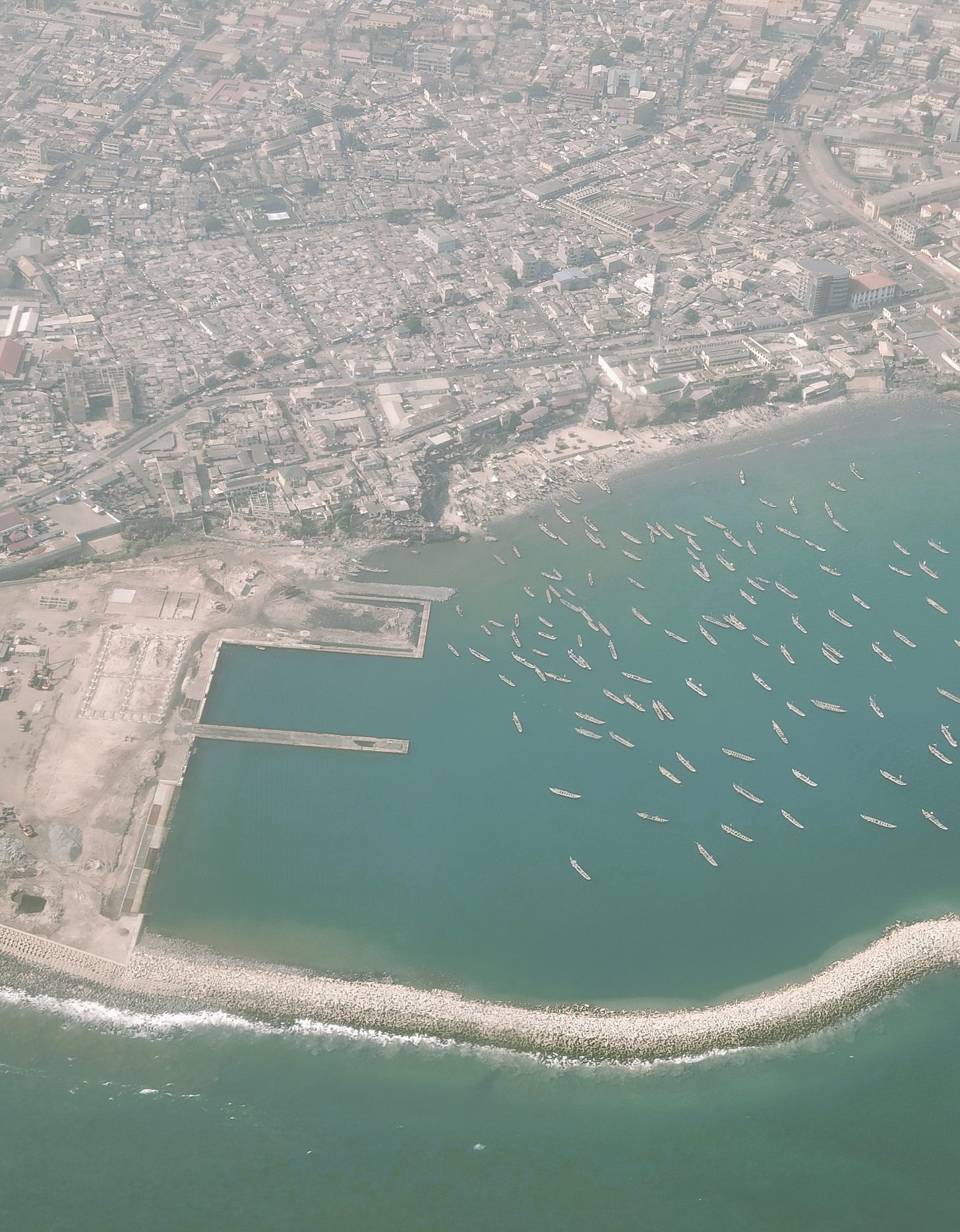
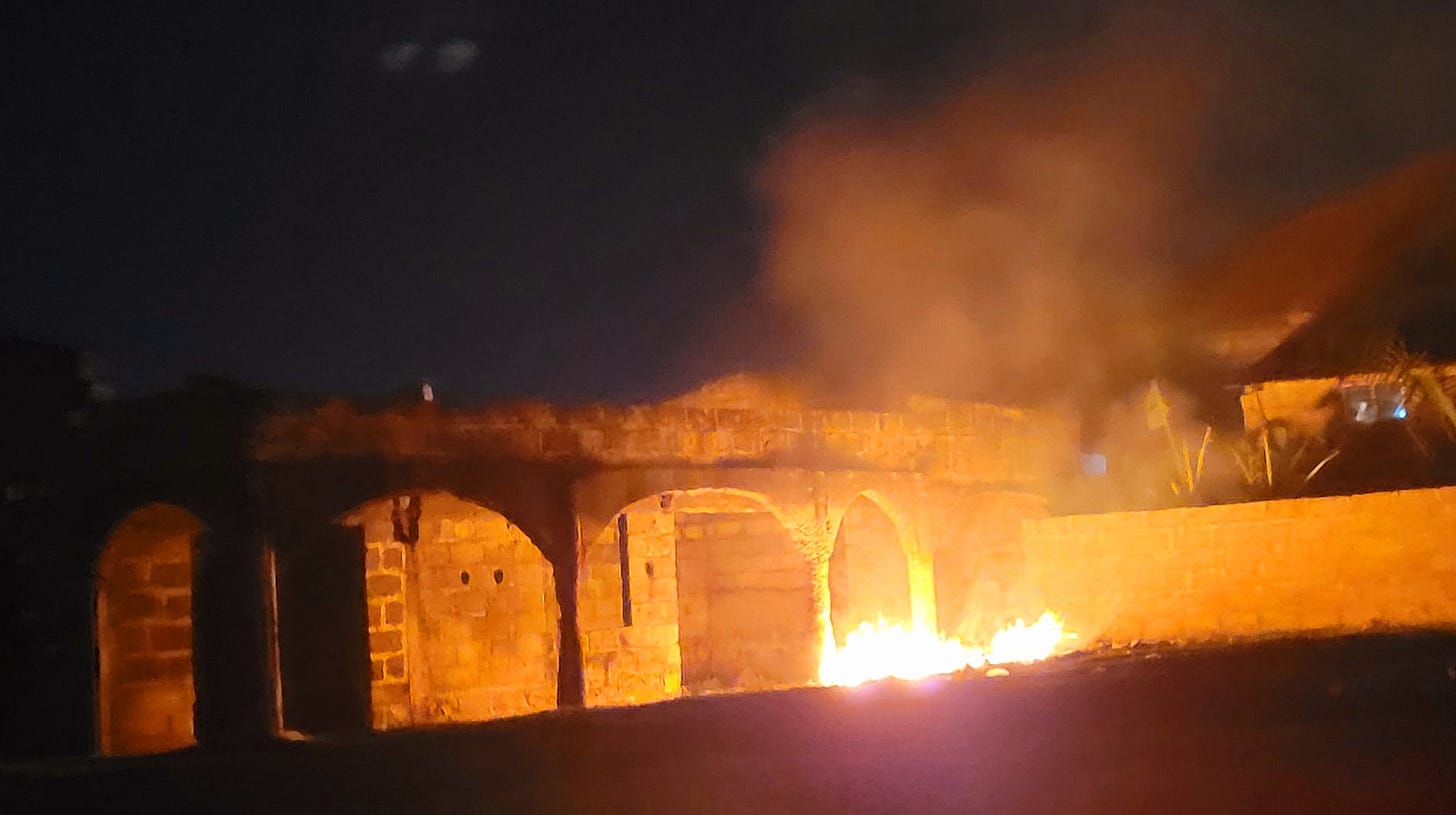


Another good writing! I felt, as I read, I was there with you!!! … wish I was!!
You have truly captured The Gambia in your description. I must add I couldn’t help laughing when I read about wanting to drink all the water of the ocean. My mother used to say that too. Thank you for this “homey” read!